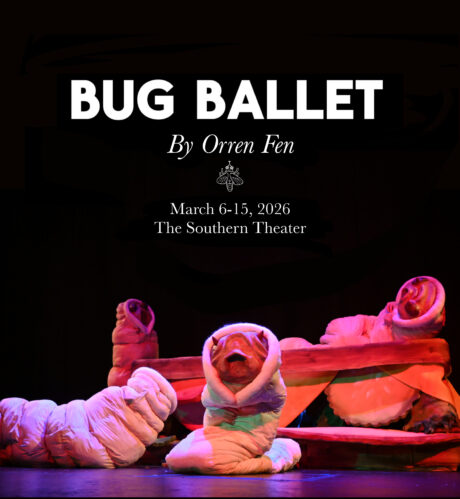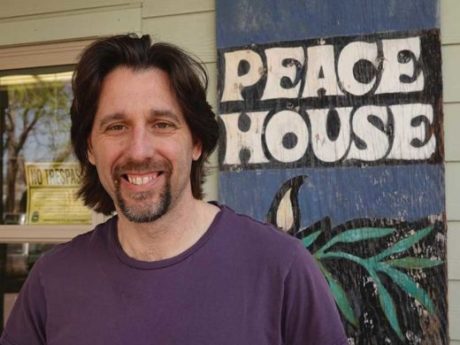February ’26 Events
Sakowin Synergy
January 22 – March 21
All My Relations Arts
1414 E Franklin Avenue
Free
Curated by mixed media artist Ray Janis, Sakowin Synergy brings together the works of four contemporary artists: Ray “Rock Boy” Janis, Sheldon Starr, Jim Yellow Hawk, and Dwayne “Chuck” Wilcox. The exhibition is woven together with deep respect for tradition and a bold embrace of modernity. Building upon this rich legacy, the artists employ electrifying, vibrant colors and develop new interpretations of traditional motifs and narratives.
Winston: A Woman’s Fight for Freedom in Minnesota
Through October 2027
Hennepin History Museum
2303 3rd Avenue S
Pay what you can
Hennepin History Museum’s newest exhibit tells the story of Eliza Winston, the first and only enslaved person to successfully fight for their freedom in a Minnesota courtroom. Featuring artifacts from the museum’s permanent collection and newly commissioned artwork depicting Eliza, the exhibit is based on the scholarship of co-curator Dr. Christopher P. Lehman, author and professor of the Department of Social Sciences at St. Cloud State University. For museum hours and visitor information, visit hennepinhistory.org.
Better Things 5×5 Reading and Open Mic
Tuesday, February 3
7 PM
Moon Palace Books
3032 Minnehaha Avenue
Free
February’s 5X5 reading will feature five fantastic artists: Ari Tison (Bribri), BakiBakiBaki, Jeffrey Dorr-Slowey, Heid E.… Read the rest “February ’26 Events”
Bug Ballet
By ORREN FEN

Set in South Minneapolis on the windowsill of a recently deceased Grandmother’s home, Bug Ballet is a large puppet and dance spectacle told through movement and original music, centered on the creeping, otherworldly, and often overlooked creatures we share our lives and homes with. Bug Ballet takes inspiration from the virtuosity of ballet form, but throws many of the typical rules and structures out the window, replacing them with giant puppets and theatrical dance.
What will happen when we are gone and our homes sit empty, deteriorating, decomposing? Maybe if we are lucky they will become grand stages for the Bug Ballet!
Performed at the Southern Theater
1420 S. Washington Ave. Minneapolis, MN 55454
More information and tickets available online at Southerntheater.org
Event dates & times
Friday, March 6th
Saturday, March 7th (Masks Required Night)
Sunday, March 8th
Thursday, March 12th
Friday, March 13th (Masks Required Night)
Saturday, March 14th
All performances start at 7:30, doors at 6:30
$15 – $45, sliding scale
About the artists
Bug Ballet is created and designed by Orren Fen. Orren is a Phillips neighborhood born puppeteer, now residing just south of Powderhorn Park. She grew up going to puppet shows at Heart of the Beast Theatre, and has performed in the Mayday Parade and Ceremony almost every year of their life.… Read the rest “Bug Ballet”
Peaceful, but not Passive
from the series Peace House Community Journal…
By MARTI MALTBY

I disagree with Mayor Jacob Frey on many topics, but I agreed with what he said during his press conference following the shooting of Renee Good. There’s so much to say about the current situation, but the part I want to focus on is Frey’s call for a peaceful response. We can debate if that’s the most important thing to worry about, but it’s uppermost in my mind as I write this.
Frey was right that we need a peaceful response. But peaceful doesn’t mean passive. We don’t need to accept how our neighbors are being terrorized, but we don’t need to resort to terror in our response either. And, thankfully, Minneapolis seems perfectly willing to be peaceful without being passive. Tens, maybe hundreds of thousands, of Twin Cities residents have protested peacefully since the shooting, but they haven’t been passive. They’ve done all they can to protect neighbors and hold the federal government accountable for its actions.
Minneapolis still bears the scars of the George Floyd riots. We’ll never know how much of the damage was caused by locals and how much by outsiders who were outraged, or who just liked seeing things burn.… Read the rest “Peaceful, but not Passive”









